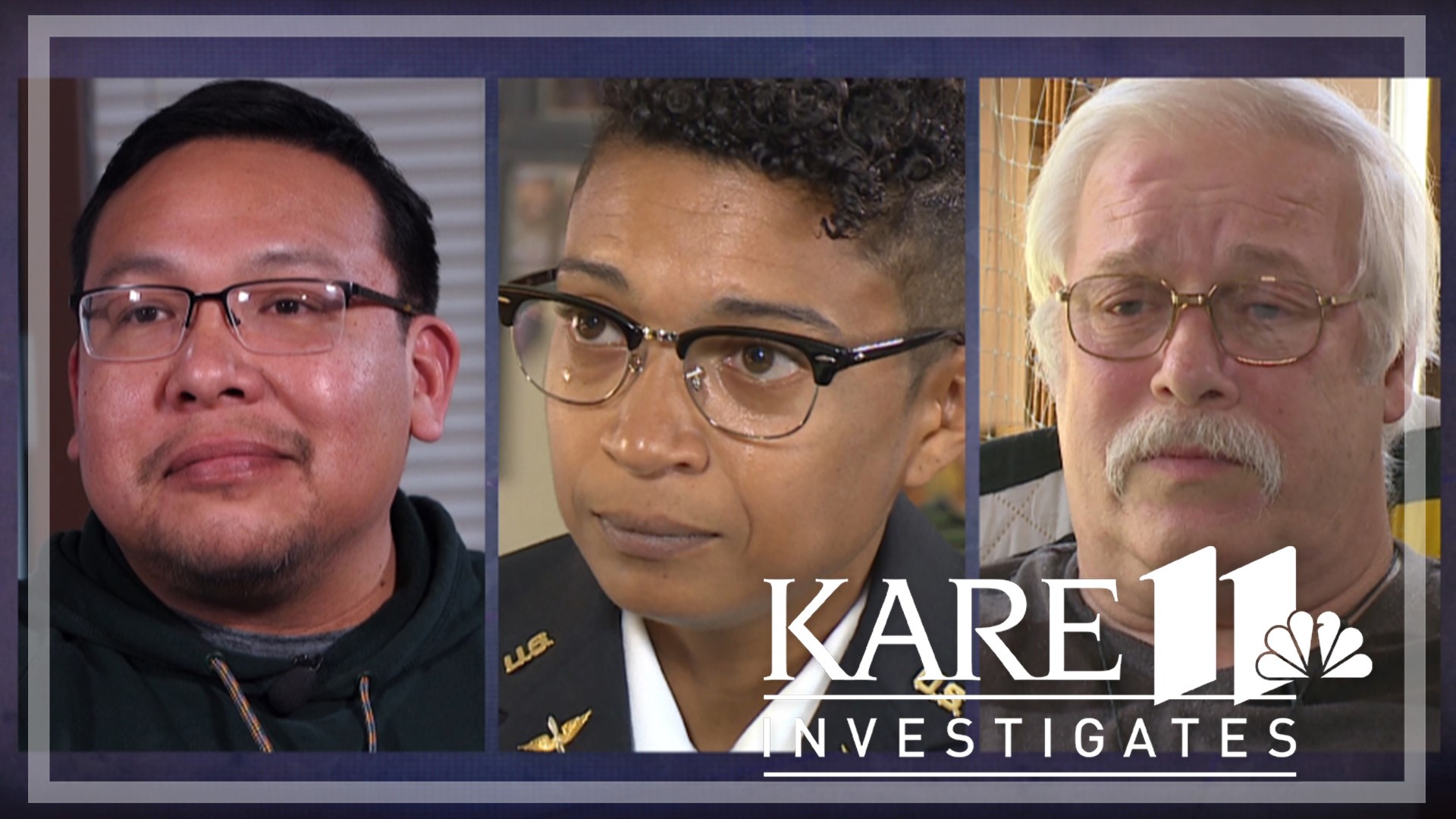TOMAH, Wis. — *Editor's note: This story contains a reference of suicidal thoughts. If you or someone you know is facing a mental health crisis, call the Suicide and Crisis Lifeline at 988. You can find more resources listed at the bottom of the article.
Calvin Cottone is a man with a love for speed. His home is filled with photos and trophies from stock car races.
Walking with a slow shuffling gate, aided by a cane, he’s quick to show off his prize possession – a race car kept in the back of his garage.
It’s a reminder of the days before the debilitating effects of multiple sclerosis robbed him of his ability to drive.
“I just sit here and look at it,” he said. “Thinking about the past a lot.”
Calvin’s past includes tours in both the Marines and Army. However, his biggest fight came after seeing a doctor for the government agency that was supposed to have his back. Instead, he says it stabbed him in it.
After a routine visit to the VA hospital in Tomah, Wisconsin for a brief exam by a VA neurologist to reassess his benefits tied to his MS, Calvin was told he did not even have the disabling disease and the Department of Veterans Affairs stripped him of all his benefits.
“Put it on the report that I didn’t even have MS,” he said.

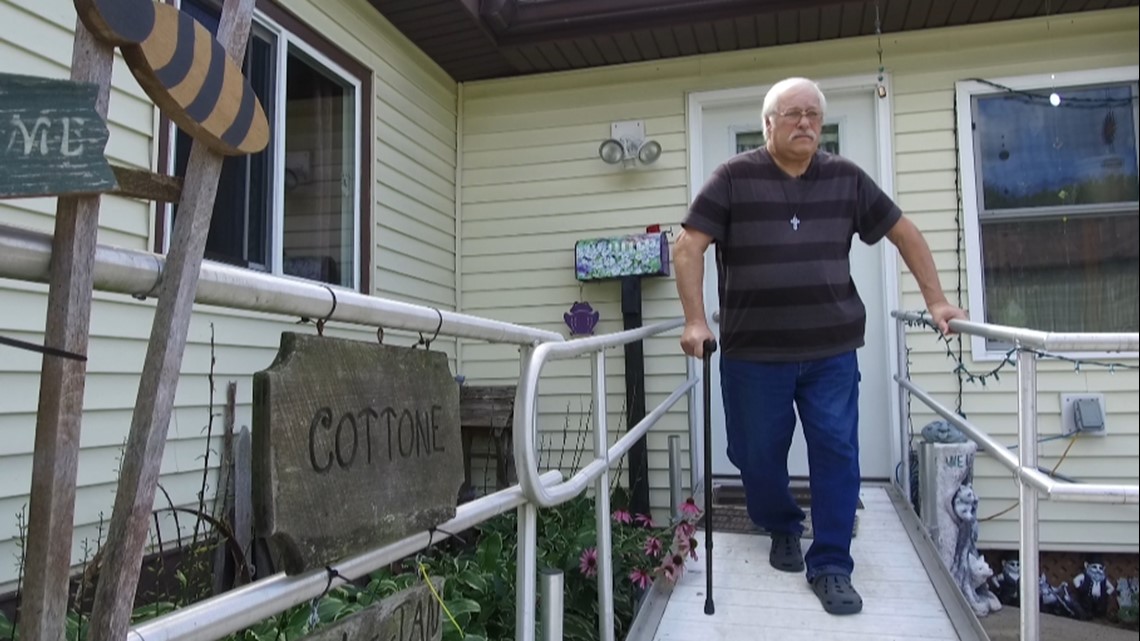
Calvin’s story is just one example KARE 11 discovered of veterans with documented and diagnosed neurological disabilities related to their service who had their care and benefits torpedoed by the same Tomah VA doctor.
“It’s a story that needs to be told,” said veteran Abby Siakpere.
Calvin’s Story
“Oh, there it is,” said Calvin’s wife Janice Cottone as she flipped through a binder containing her husband’s medical records.
Janice worked at the Tomah VA as a nursing assistant for 37 years and keeps meticulous records.
“You got to have proof of what was said,” she remarked.
Calvin’s medical records show he has had symptoms of multiple sclerosis dating back at least two decades.

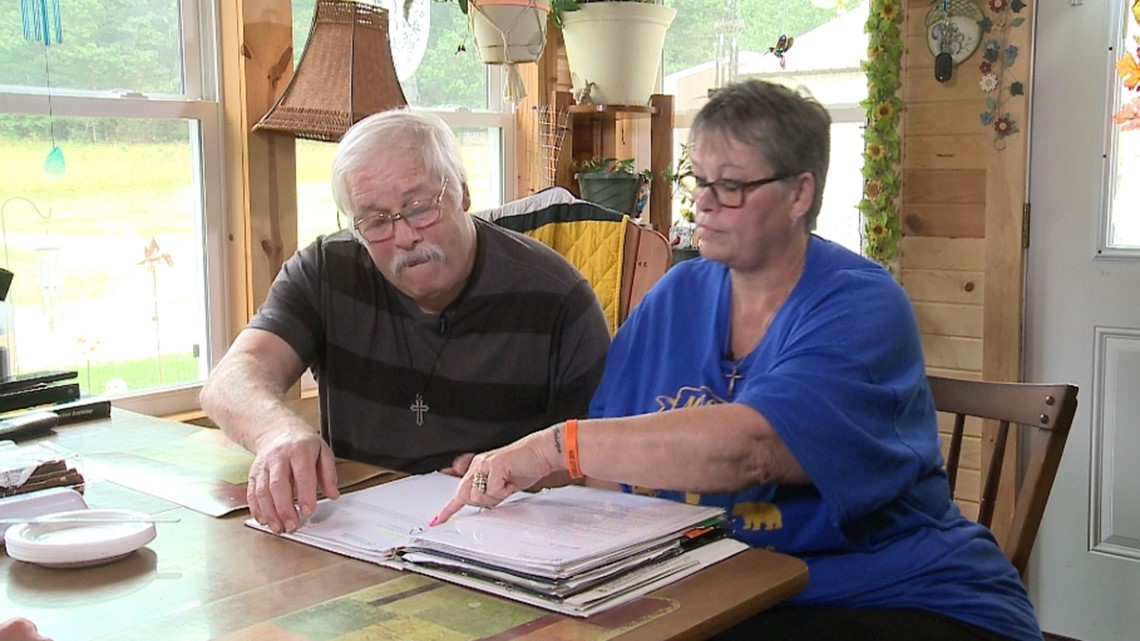
In 2013, the Tomah VA itself documented he had MS connected to his service.
His 30% disability benefits came to about $450 a month.
“It’s not a lot, but that brought groceries on the table,” said Janice.
In 2016, Calvin’s condition started to worsen. He was falling a lot and struggling with fatigue and other issues.
The Cottones say his private doctors recommended he be reevaluated by the VA to see if his worsening symptoms qualified him for additional benefits.
The couple says not in their wildest dreams could they have foreseen what would happen instead.
Records show Calvin was seen at the Tomah VA by a neurologist named Mary Jo Lanska.
He says he spent only 30 minutes with the physician.
After that appointment, Dr. Lanska wrote in Calvin’s records that, “It is this neurological examiner’s opinion that the veteran’s condition that is currently labeled “MS” has been diagnosed in error.”
“It kind of scared me at first,” Calvin said, “I didn’t know what to do.”

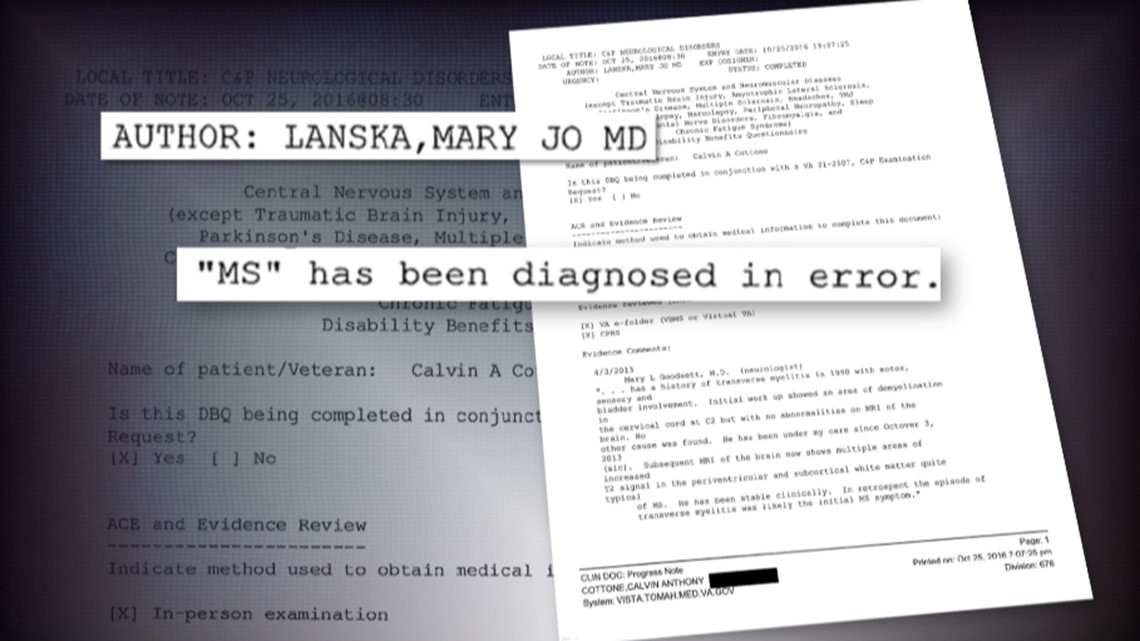
Despite Calvin’s private doctor writing to the VA that he had been treating him for multiple sclerosis for over 20 years, the Department of Veterans Affairs placed more weight on Dr. Lanska’s finding.
On March 8, 2017, the VA sent Calvin a letter stating his service connection for multiple sclerosis was being severed “due to incorrect diagnosis.”
That meant not only was he losing the financial compensation, but the VA would also stop help covering the cost of his medications.
“Your heart drops when you get that letter and open it up and it says, ‘not only are you not getting more, you're just being discontinued from the whole VA system.’” Janice said.
TBI denial
Marine Veteran Brandon Winneshiek knows all too well how the Cottones felt in that moment.
“Tomah VA turned me down,” said the Iraq War veteran. “Told me to kick rocks.”
Records show Brandon survived multiple IED blasts while serving in Ramadi, Iraq – including one that hit the building his observation post was in.
“I’ll never forget what happened,” he said as he described the blast. “I had been thrown across the room.”

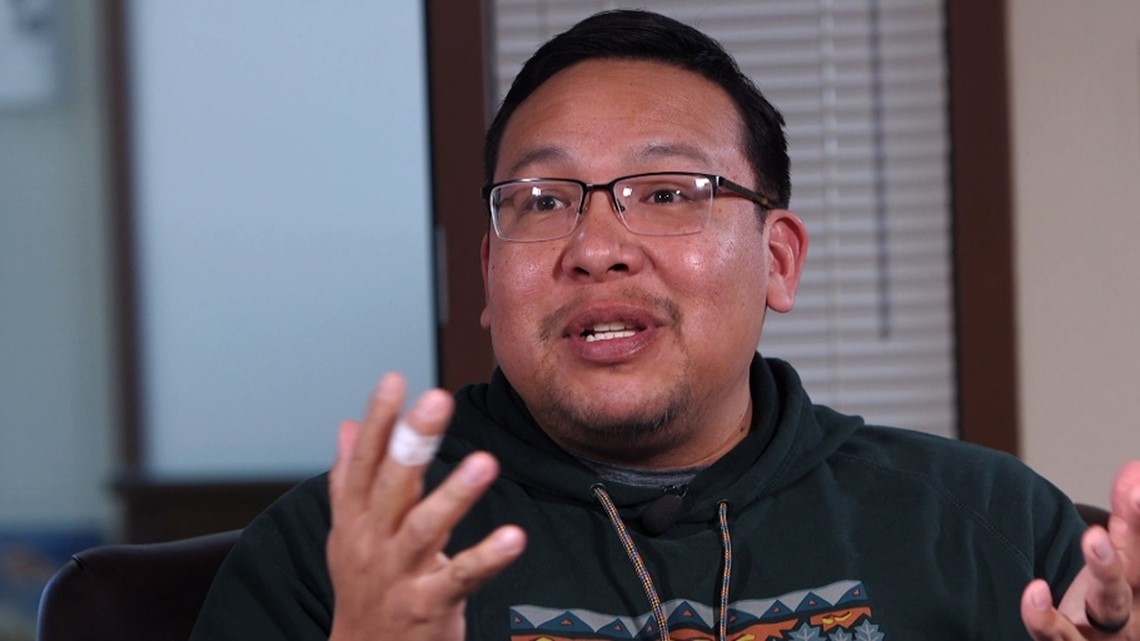
Brandon was repeatedly told by VA hospitals in Minneapolis and Tomah that he didn’t have a Traumatic Brain Injury, despite his combat history and symptoms screaming otherwise.
“I was struggling to not kill myself,” he said.
Winneshiek was part of nationwide scandal KARE 11 exposed in 2015, documenting how the VA had been using doctors who – by the VA’s own rules – were unqualified to diagnose TBI’s.
In 2016, the VA acknowledged the problem and notified nearly 25,000 veterans nationwide that they were entitled to new TBI examinations.
When Winneshiek, at the time a police officer for the Ho Chunk Nation, finally got to see a qualified neurologist at the Tomah VA, he says the exam with Dr. Lanska lasted just half an hour.
“How can somebody diagnose traumatic brain injury in 30 minutes? It’s impossible,” Brandon recalls thinking as he left.

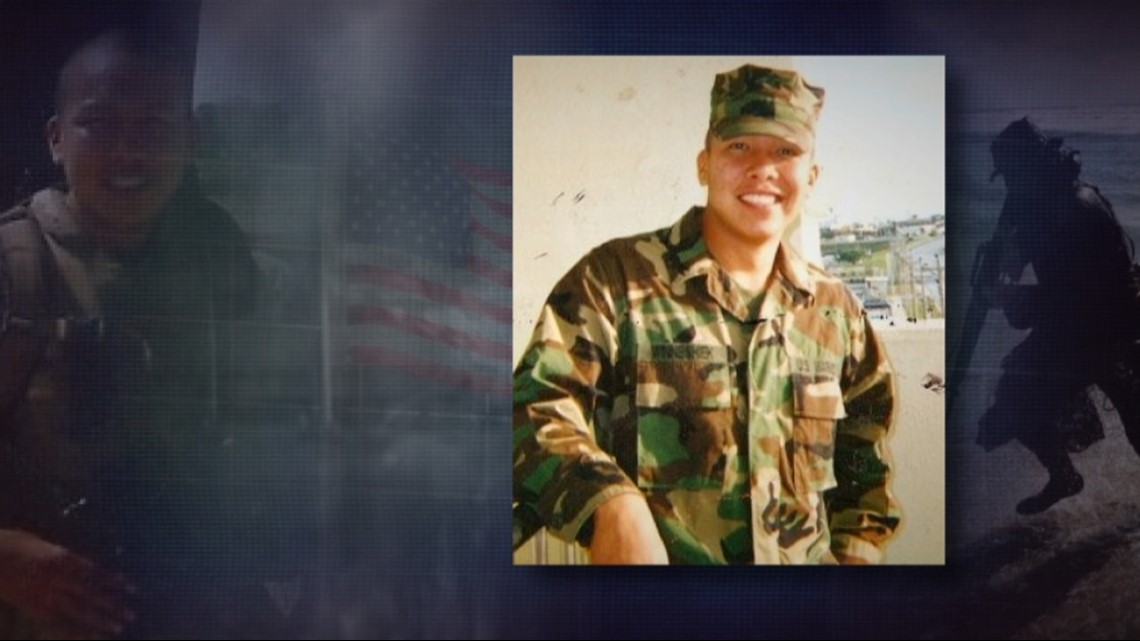
Medical records show she gave him just a brief screening test typically used to spot dementia before reaching the “significant diagnostic finding” that the combat veteran did not have a TBI.
Medical experts like neuropsychiatrist Justin Otis told KARE 11 those short screening exams are completely inadequate to diagnose TBI.
“It’s not meant to be a diagnostic tool,” Otis said. “It’s not sensitive or specific for traumatic brain injury.”
For Brandon, Dr. Lanska’s diagnosis that he did not have a TBI meant he received no treatment specific for brain injury – and did not qualify for benefits.
Seeking outside help
He continued to have worsening symptoms, including relentless thoughts of suicide, sudden mood changes and unexplained physical symptoms such as dizziness.
“There’s been days where I put my dress blues on – my uniform – and I’ve had a gun in my mouth and came so close to pulling the trigger,” he said.
His troubles forced him to quit his job as a police officer and strained his marriage to his wife, Josie.
“I didn’t know what to do,” Josie recalls. “Nobody is prepped as a spouse for how to handle that.”
Brandon says he continued to ask the VA for further TBI testing and continued to be denied.
“I just knew something was wrong,” he said.
In March of 2021, records show Brandon asked his primary care doctor at the Tomah VA for a consult to go outside the VA system for TBI testing.
The consult request once again landed on the desk of Dr. Lanska.
Dr. Lanska declined Brandon’s request for further evaluation. She wrote that because of her previous screening in 2015, it was noted, “you do not have a TBI.” The letter goes on to say if Brandon wanted to pursue this issue further, he could use his private insurance to get evaluated.
Desperate for answers, Brandon turned to Gunderson Health System.


“The VA kicked me to the curb,” said Brandon. “I knew I had to look for a real neurology department, I needed that high-quality examination that the VA promised to give me and never did.”
Records show at Gunderson he spent weeks going through a barrage of imaging and testing with multiple specialists, including Dr. Otis.
Brandon was found to have significant deficits with attention and memory, and demonstrated symptoms of cognitive dysfunction consistent with a history of multiple combat-related concussions.
The specialist’s findings each pointed to the same diagnosis.
“Brandon sustained multiple mild traumatic brain injuries through his military career and has deficits that are, I believe to be, permanent,” Dr. Otis told KARE 11.
The proper diagnosis forced the VA to back down. Brandon can now get not just benefits, but treatment to help cope with the deficits of his brain injuries – injuries Dr. Lanska insisted he did not have.
“I started crying,” he said.
It messes with your self-worth
Tears run down Abby Siakpere’s face as she tells her story of turning to the Tomah VA for medical help.
“It messes with your self-worth,” the former Black Hawk pilot said. “When you work so hard over and over to prove yourself, just to be denied by an organization you went to for help.”
Abby’s military records show a documented line of duty head injury from a training accident.

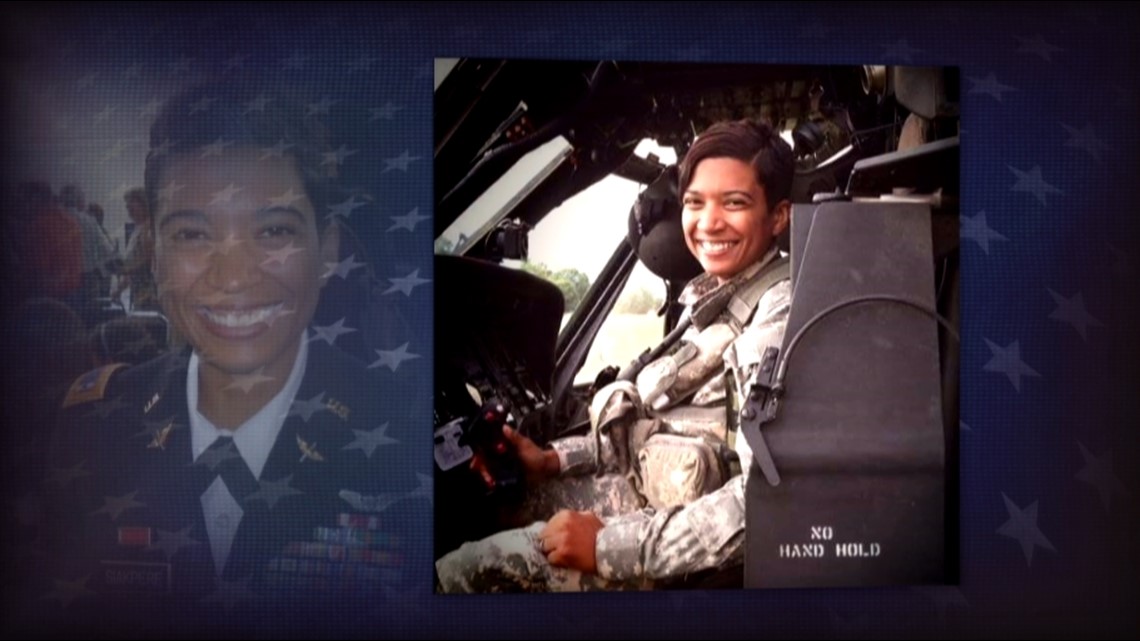
After she got out of the Illinois National Guard, while working as a civilian at Fort McCoy Army Airfield as an aircraft refueler, she took another brain blow, falling off the wing of a plane.
“Basically, landed spread eagle on my back and hit head first on the tarmac,” she said.
Within weeks she developed strange movements or tremors in her hands and feet, delayed speech and cognitive functioning.
She began seeing a private neurologist at Gunderson Health in La Crosse, Wisconsin where she was diagnosed with functional movement disorder.
Records show the neurologist at Gunderson wrote, “This is a complex case as functional movements are more likely to occur after multiple head injuries as it leaves the brain less cognitive reserve to manage stress. I suspect this latest head injury was the straw that broke the camel’s back.”
Abby says she turned to the Tomah VA looking to get a second opinion about how best to treat her disorder.

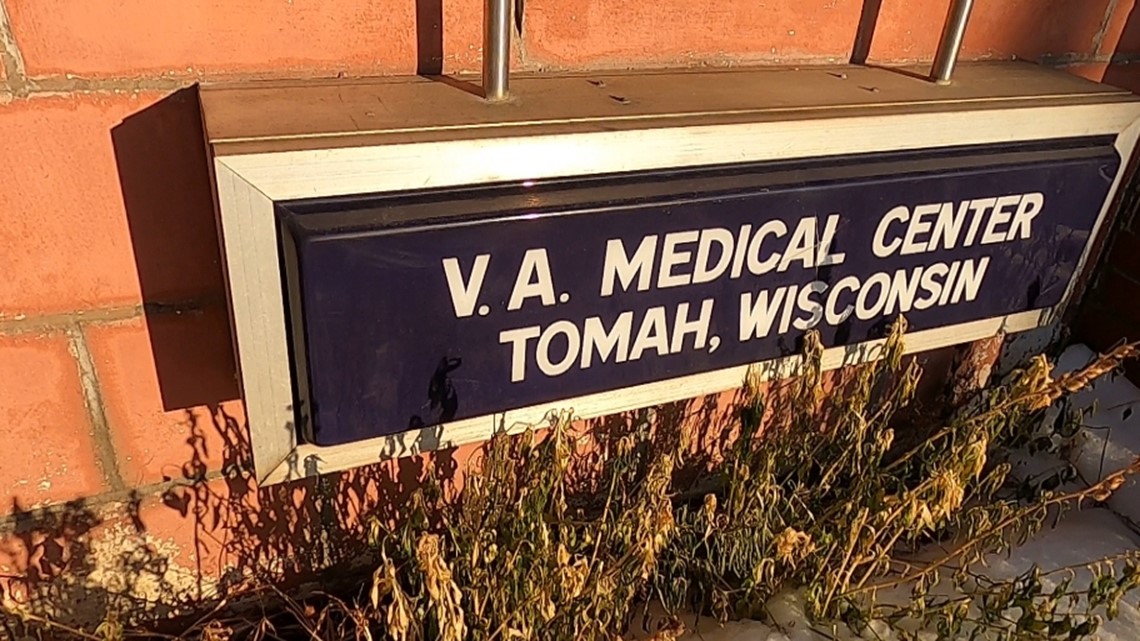
“I knew that I had a previous concussion in the military. And due to this new diagnosis of functional movement disorder and it being connected to the previous TBI, I wanted to have an opinion from a military perspective and since I was close to the Tomah VA, that’s where I sought care,” she explained.
Faking it?
Dr. Lanska never saw Abby, just reviewed her chart and records.
What she wrote in the Veteran’s file following that chart review, Abby calls insulting.
Dr. Lanska wrote that for people with functional movement disorder, “It is often challenging to determine what the secondary gain is.” She added, “common underlying agendas include avoidance of work, monetary gain, psychological benefit from increased care/concern of family/friends/caregivers, and often combinations of multiple motivations.”
“It accused me of malingering, which is faking my symptoms,” Abby said.

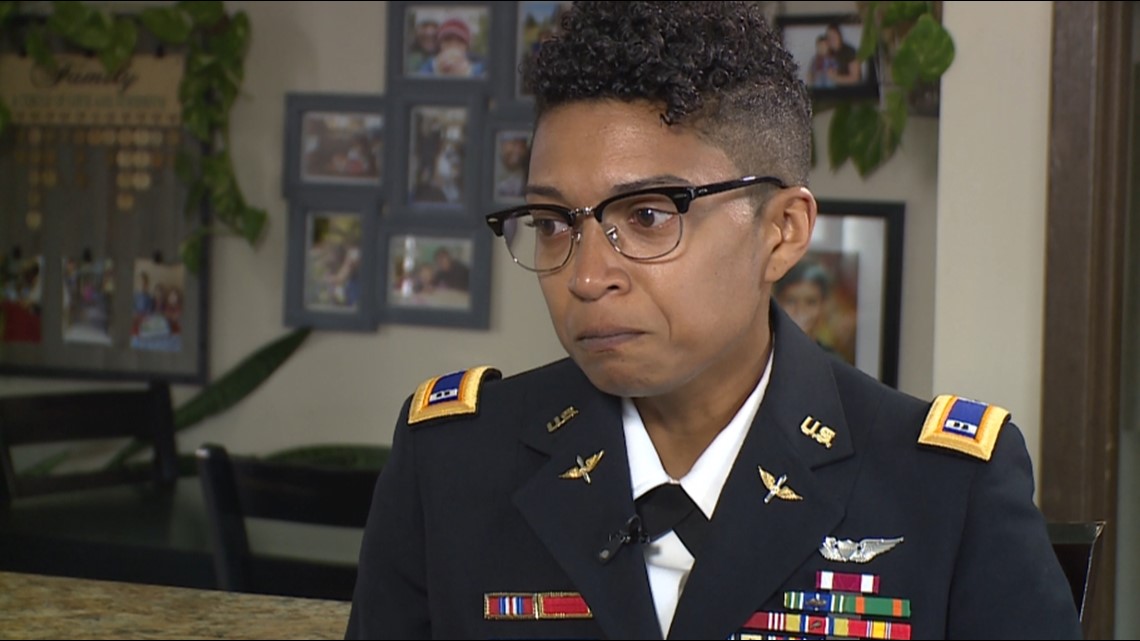
When Abby later applied for VA disability benefits, she was denied.
The denial letter she received states her disorder is “possibly for secondary gain per Tomah VA neurology …”
Abby’s private neurologist sent the VA a scathing letter in response.
It states, “The VA needs to seriously review their understanding of this very common disorder.”
The private neurologist wrote what Dr. Lanska and the Tomah VA did, “dooms these individuals to prolonged disability and denial of much needed and deserved care.”
Abby asked Tomah VA to have the disparaging note removed from her medical records.
They sent her a letter saying they did a “thorough review” and her request is denied.
When Abby asked in writing who did that thorough review, she learned it was not an impartial review by unconnected medical experts.
The Tomah VA responded, “Dr. MJ Lanska conducted the review.”
“It’s a slap in the face,” Abby said, “It’s a slap in the face.”
No question
After Dr. Lanska ruled Calvin Cottone didn’t have MS, he was forced to undergo a painful spinal tap just to prove he had the disease multiple private doctors had already diagnosed.
The physician who performed the spinal tap wrote of Calvin’s multiple sclerosis diagnosis, “there is no question about this.”

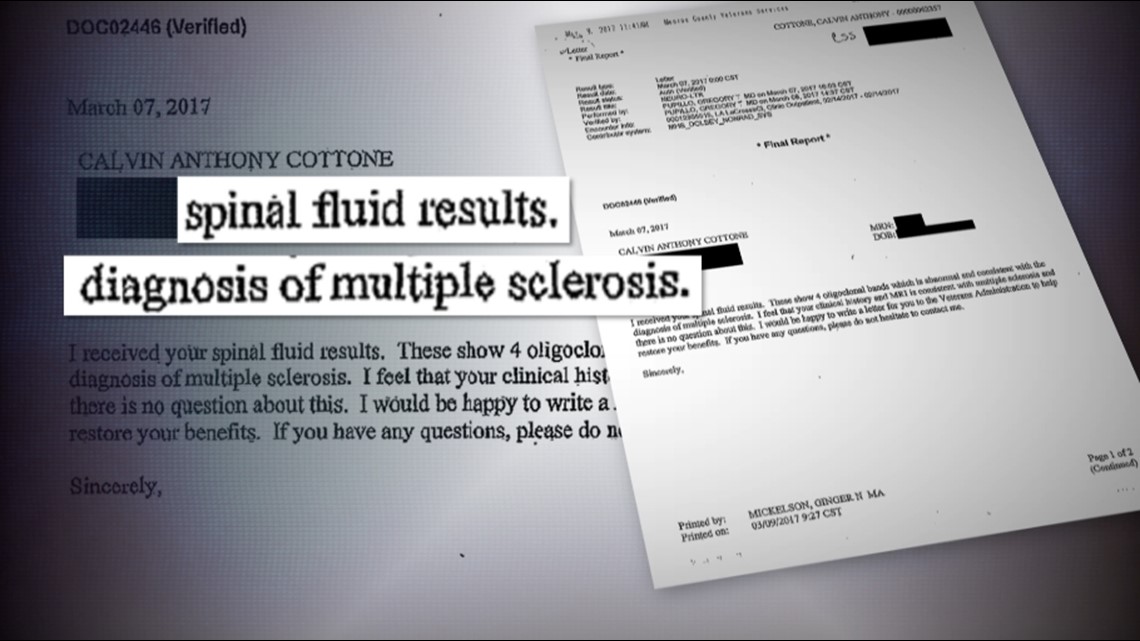
That forced the VA to do an about face and acknowledge that Dr. Lanska was the one who made a misdiagnosis.
The agency rescinded its decision to sever Calvin’s benefits and was forced to acknowledge what his private doctors had been saying all along – that he was getting worse.
The VA increased his benefits from 30% to 100%.
Interview denied
The Tomah VA refused KARE 11’s multiple requests to interview Dr. Mary Jo Lanska and hospital leadership.
They also refused to answer any direct questions, just sending the following statement:
“We are aware of concerns expressed regarding a provider who conducted Traumatic Brain Injury (TBI)-related compensation and pension (C&P) exams. As part of our mission to provide high-quality care, we ensure all our providers participate in required, ongoing, and comprehensive reviews of professional practices. These reviews ensure our providers meet the standards of care for their respective areas of expertise.”
Senators demand answers
KARE 11 first reported on Brandon Winneshiek’s TBI misdiagnosis by Dr. Lanska in February of this year.
In the wake of that reporting, U.S. Senators Tammy Baldwin of Wisconsin and Tammy Duckworth of Illinois have begun demanding answers from VA Secretary Denis McDonough.
In a letter dated September 30, 2022 Senator Baldwin wrote the VA Secretary, “Specifically, I am requesting that you conduct a comprehensive investigation into the practices of Dr. Mary Lanska at Tomah VAMC to determine whether there is a broader pattern of misdiagnoses or other practices that may be preventing veterans from receiving care or benefits for certain neurological disorders.”
If you’re a veteran misdiagnosed by the Tomah VA neurology department, KARE 11 wants to hear about it. Email us at investigations@kare11.com.
If you or someone you know is facing a mental health crisis, there is help available from the following resources:
- Crisis Text Line – text “MN” to 741741 (standard data and text rates apply)
- Crisis Phone Number in your Minnesota county
- National Suicide Prevention Lifeline at 988, Talk to Someone Now
- Throughout Minnesota call **CRISIS (**274747)
- The Trevor Project at 866-488-7386
Watch more KARE 11 Investigates:
Watch all of the latest stories from our award-winning investigative team in our special YouTube playlist:

